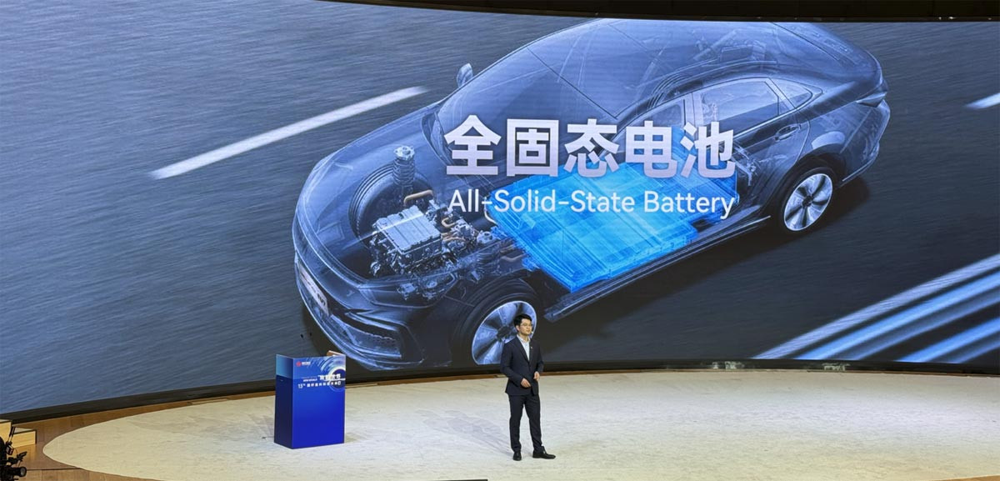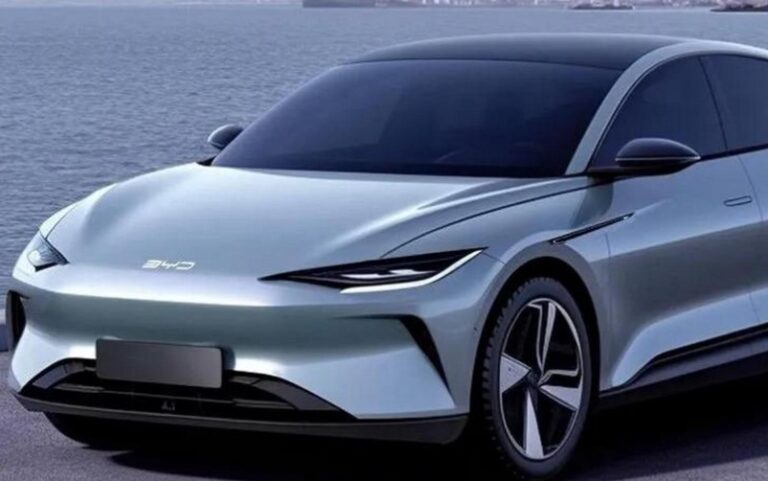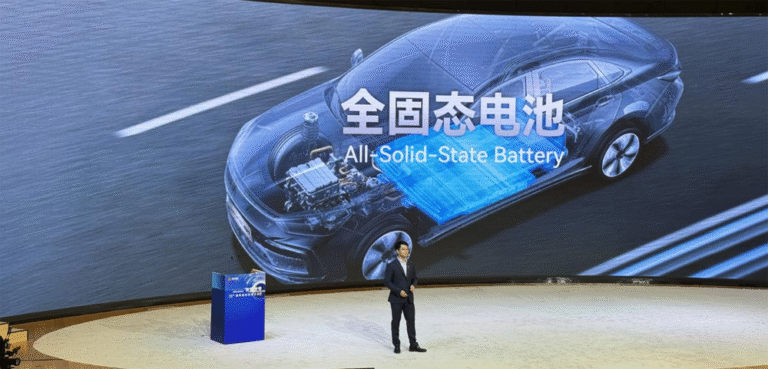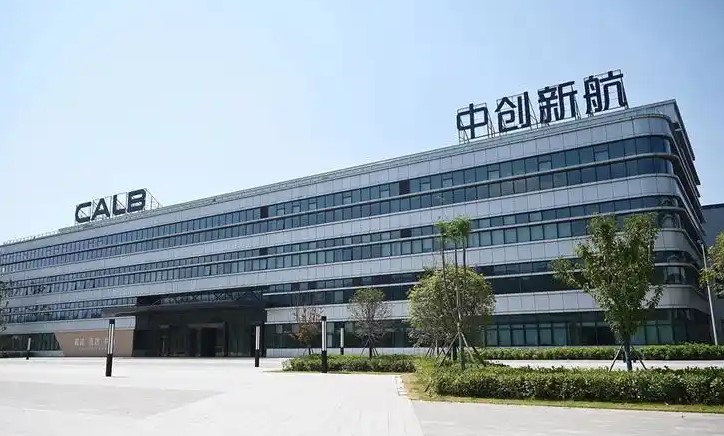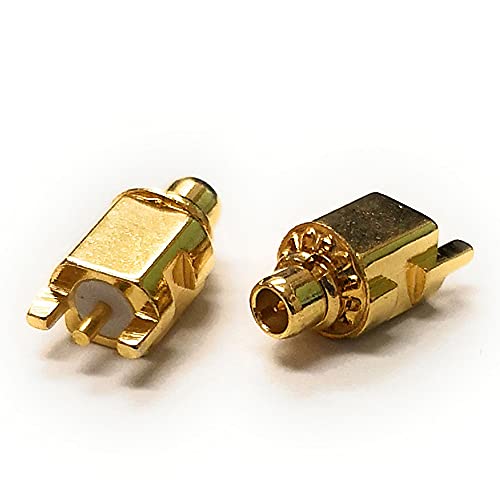Gotion High-Tech Company Limited Detailed Research Report ,Global Expansion and Key Overseas Partnerships
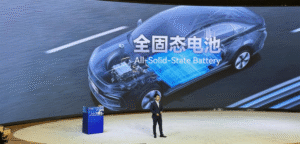
Facing a maturing domestic market, Gotion High-Tech has made global expansion the cornerstone of its growth strategy. The company’s leadership views international has made global expansion the cornerstone of its growth strategy.
The company’s leadership views international markets as the key to absorbing excess capacity and driving new growth, especially as China’s domestic battery arena becomes highly competitivfinance.sina.com.cn】.
Gotion explicitly stated that, while it will maintain its domestic presence, its “No.1 priority” is to gradually build a global market system covering Asia-Pacific, Europe/Africa, and the Americafinance.sina.com.cn】.
In pursuit of this, Gotion has aggressively established overseas operations (as detailed in the manufacturing section) and forged strategic partnerships across the value chain.
Overseas Business Growth: Gotion’s focus on foreign markets is already yielding results. In 2023, its overseas revenue more than doubled, and by H1 2024 overseas sales accounted for 30% of total revenufinance.sina.com.cn】. This was driven by surging demand in Europe and North America, where EV adoption and energy storage deployments are accelerating.
Gotion’s batteries have been exported to Thailand, Indonesia, Vietnam, India, Singapore, the United States, Canada, the EU and other regionsstcn.com】. Tapping these markets helps Gotion mitigate the intense price competition in China and diversifies its customer base. According to SNE Research, Gotion held a **2.6% share of the global EV battery market in Jan–Oct 2024 (ranked #8)cnevpost.com】, up from a lower rank a few years prior – a clear sign that its global push is expanding its reach.
Key Overseas Partnerships and Customers:
- Volkswagen Group: By far, Gotion’s most significant overseas partner is Volkswagen. The VW-Gotion alliance is multifaceted:
- Equity Partnership: VW’s purchase of ~26% of Gotion in 2020 made it the largest shareholdevolkswagen-group.comcnevpost.com】.
This tie-up aligned Gotion’s interests with VW’s long-term EV strategy. Gotion gained not just capital but also VW’s endorsement, boosting its credibility globally. - Technology Collaboration: Gotion became the first nominated supplier for Volkswagen’s Unified Cell (unified battery format) for the VW group’s new generation EVen.gotion.com.cn】. This suggests Gotion will supply or co-develop standardized cells that VW plans to use across multiple models and brands from 2025 onwards. It’s a major win, potentially securing high-volume orders and embedding Gotion technology into VW’s supply chain.
- Joint Ventures: While not a formal JV, VW and Gotion closely cooperate on projects. For instance, VW’s Salzgitter gigafactory (under Volkswagen Group Components) benefited from Gotion’s expertisvolkswagen-group.com】, and conversely, Gotion’s German pack plant likely serves VW. In China, Gotion supplies batteries for some VW China models (particularly hybrids).
- Recognition: In 2022, Volkswagen awarded Gotion its Battery Supplier of the Year honoen.gotion.com.cn】, indicating Gotion met VW’s stringent quality, innovation, and sustainability criteria.
This partnership anchors Gotion’s presence in Europe and provides a steady business base. It’s also a strong validation for other automakers that Gotion’s products are world-class.
- Equity Partnership: VW’s purchase of ~26% of Gotion in 2020 made it the largest shareholdevolkswagen-group.comcnevpost.com】.
- Domestic OEMs (as indirect global exposure): Within China, Gotion’s clients include JAC (Anhui Jianghuai Automobile), an early customer given geographical proximity (Anhui). Gotion also reportedly supplies smaller EV makers like Hozon Auto (Nezha) and has worked with Xpeng and Geely on certain models or pilot programs.
These Chinese automakers themselves are expanding overseas (for example, Xpeng and NIO in Europe), which means Gotion’s batteries could indirectly end up in EVs on foreign roads via Chinese car exports. However, CATL and BYD currently dominate Chinese OEM supply; thus Gotion is looking to Western and emerging-market OEMs for its next growth. - North American OEMs: Gotion’s new U.S. plants hint at targeting American carmakers and energy companies:
- It is speculated that Gotion could supply the likes of General Motors, Ford, or Stellantis in the future, especially as those automakers seek additional battery sources beyond their current joint ventures. No public deals are announced yet, but the Illinois plant location (near the Midwest automotive belt) positions Gotion favorably.
- Gotion’s focus in Illinois on both EV packs and ESS indicates potential partnerships with energy firms too. For instance, it could partner with solar/storage developers to provide battery units for utility projects. The ComEd utility in Illinois has collaborated with Gotion in facilitating power infrastructure for the Manteno planpoweringlives.comed.com】, showcasing public-private alignment.
- Energy and Resource Partners:
- BASF: In July 2023, Gotion and BASF signed an MOU to deepen cooperation on battery material innovatioen.gotion.com.cn】. BASF, as a leading chemical company, can provide advanced cathode materials and electrolytes, while Gotion offers cell testing and implementation. This partnership is key for Gotion to access cutting-edge materials (like high-nickel low-cobalt cathodes or next-gen electrolytes) and to localize material sourcing in Europe (BASF has battery material plants in Germany and Finland). A stronger BASF tie could also ensure compliance with EU content regulations by using European-made materials.
- Lithium Suppliers (Argentina’s JEMSE): Gotion took the proactive step of partnering with Jujuy Energia y Mineria Sociedad del Estado (JEMSE), the state mining company of Jujuy, Argentinyicaiglobal.com】. Together they are building a lithium carbonate refinery (10,000 ton/yearmarklines.com】. This positions Gotion to secure a stable, cost-effective supply of lithium – the lifeblood of Li-ion batteries – and hedges against volatile lithium prices. It also ingratiates Gotion with the Argentine government, which, like many, wants value-added processing domestically rather than just exporting raw materials. In the long run, Gotion could potentially build a cell plant in Argentina, leveraging local lithium.
- Battery Startups (InoBat Auto): Gotion purchased a 25% stake in InoBat Auto, a Slovakian battery startup, in 202autonews.com】. InoBat specializes in customized EV battery solutions and R&D. By teaming up (and now planning a JV gigafactory in Slovakicnevpost.com】), Gotion gains a footprint in Europe with local know-how, and InoBat gains Gotion’s scale-up expertise and supply chain. This partnership exemplifies Gotion’s approach of “globalising by partnering locally” – combining its strengths with regional players to break into new markets.
- Local Governments and Agencies: Gotion’s overseas projects often involve close partnership with governments. It secured $536 million incentive from Illinoietn.news】, €214 million aid from Slovakicnevpost.com】, and investments from Morocco’s state fund (CDGcnevpost.com】. Gotion has navigated foreign investment reviews (CFIUS in the US for example) and adapted to local requirements, demonstrating a willingness to be a collaborative, long-term investor abroad. Establishing trust with authorities is crucial as a Chinese company expanding globally, and Gotion appears to be succeeding, largely by emphasizing job creation, technology transfer (e.g., training local workforce), and alignment with host countries’ EV and clean energy goals.
- Emerging Market Clients: Gotion is exploring markets in Southeast Asia, India, and Africa. For instance:
- It has supplied batteries for electric buses in India in pilot projects and is monitoring the Indian market as it formulates an EV battery policy.
- In Thailand and Indonesia, which are developing EV assembly hubs, Gotion’s exported cells could attract local assemblers or global OEM plants there. Also, Indonesia’s push for battery manufacturing (given its nickel resources) could see Gotion invest or partner locally, although as of 2024 CATL and LG have already established presence there.
- The planned Malaysia battery pack plant (reported via Malaysian national news) indicates Gotion’s strategy to use Malaysia as a base to serve ASEAN EV makers and possibly Japanese/Korean automakers with manufacturing in the regiofinance.sina.com.cn】.
- Africa: Aside from Morocco (North Africa), Gotion’s products could appeal to South African renewable projects or other African e-mobility initiatives in the future. Having a base in Africa (Morocco) can serve EU demand and potentially African regional demand as EV adoption grows.
Risks and Strategic Responses: Management is cognizant of the risks in rapid overseas expansion:
- Financial Strain: Global projects are capital-intensive, and Gotion’s high debt and heavy investment phase puts pressure on liquiditfinance.sina.com.cnfinance.sina.com.cn】. Gotion has addressed this by raising equity (e.g., VW investment, Chinese government support, possibly consideration of secondary listings) and securing government incentives. The strategy is to front-load investments for long-term gains, essentially “spending now to win later.” Investors have shown patience due to the strategic importance of these projects.
- Geopolitical/Policy Risk: There is uncertainty around how Western governments will treat Chinese battery companies. An industry expert, Zhang Xiaolong, noted that while Chinese battery tech currently has advantages in the West, there’s significant policy risk – e.g., if the US or EU tighten policies, Chinese companies might be denied subsidies or face trade barriers even for locally produced batteriefinance.sina.com.cnfinance.sina.com.cn】. The U.S. Inflation Reduction Act, for instance, links subsidies to sourcing from free-trade partners (which currently excludes China). Gotion’s approach is to localize as much as possible (materials, workforce) to qualify for incentives and to diversify markets so it’s not overly reliant on one region’s policy. Building plants in the US and Europe is a direct response to these challenges, aiming to be seen as a “local” producer. If in the future geopolitics worsen, Gotion might face headwinds, but it has shown flexibility – for example, it could incorporate non-Chinese entities (like the JV with InoBat) to navigate rules, or shift focus to friendlier emerging markets.
- Competition Abroad: Gotion will compete on foreign soil with entrenched players (LG, Panasonic, SK On in the US; Northvolt, etc., in Europe) as well as compatriots like CATL (which is also building in Germany). To win deals, Gotion leverages its tech innovations, cost competitiveness, and ties with VW. Additionally, it often targets segments or customers that might be underserved – for example, its focus on LFP and ESS in the US sets it apart from others mostly doing NCM for EVs. By differentiating its product offerings and being agile, Gotion aims to carve out a niche rather than head-on collision with every competitor.
- Opportunity Cost: Executives argue that the current period is a “once-in-a-century” chance for Chinese component makers to go globafinance.sina.com.cn】. Gotion’s management clearly feels that not expanding now would mean falling behind later. This sense of urgency drives them to accept short-term strains for long-term positioning. As Zhang (Secretary General of an intelligent vehicle association) analyzed, Gotion’s bold overseas expansion is the right strategy despite high debt, because missing the window could leave it locked out of key markets for yearfinance.sina.com.cn】. This reflects the company’s strategic conviction.
Global Outlook: Gotion’s globalization efforts have rapidly transformed it from a local supplier to a rising international player. If its overseas factories come fully online by mid-decade, Gotion will have a production trifecta in Asia, Europe, and North America, something only CATL (and maybe BYD by then) can claim among Chinese peers. Its partnerships with VW, BASF, InoBat, and others embed it in global supply chains, while its customer reach now spans from Chinese EV startups to European auto giants.
The company’s ability to manage relationships is notable: it works with local governments, aligns with partners’ needs (like meeting VW’s specs, or co-developing materials with BASF), and even addresses local political sensitivities (branding itself as a job creator in the US, for instance). This diplomatic and adaptive approach is smoothing Gotion’s international foray.
In conclusion, Gotion’s international expansion strategy is bold and multifaceted – involving manufacturing investments, equity partnerships, joint R&D, and localization. Key partnerships, especially with Volkswagen, have given it a foothold and credibility in high-value markets. The strategy is already paying off in revenue diversification and global market share gains. While challenges exist, Gotion’s proactive measures (from securing raw materials to complying with local rules) show a company intent on becoming a truly global battery supplier. If successful, Gotion High-Tech will stand alongside the likes of CATL, LG, and Panasonic as a battery powerhouse with worldwide presence, validating its approach of matching CATL and CALB in depth and ambition.

